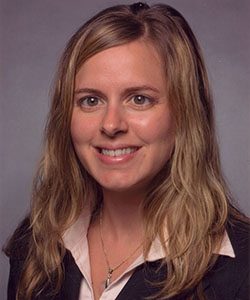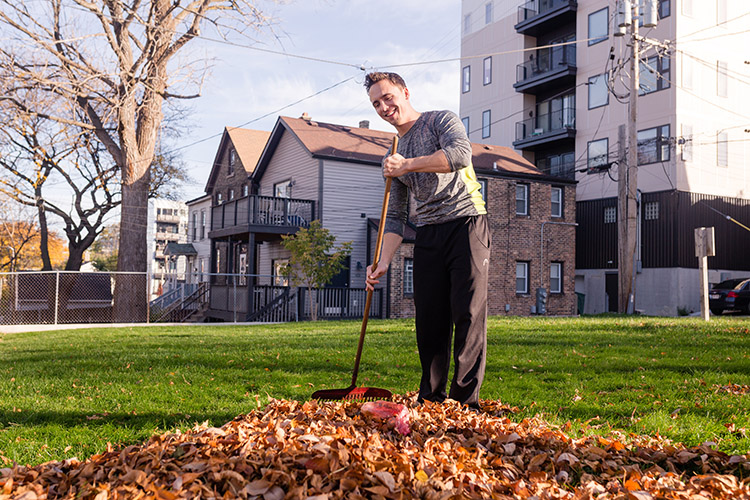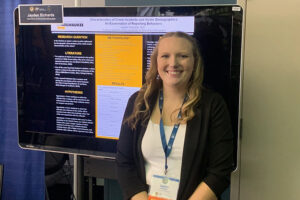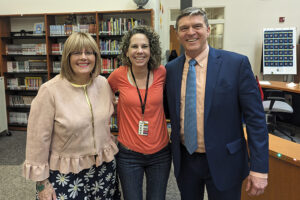When Heidi Plach steps into a lecture hall in UWM’s College of Health Sciences, she’s hoping to teach her students that being involved in the community and being of service to others are essential to one’s personal and professional life.
“I want students to get experience beyond what they are familiar with,” Plach said. “I want them out of their comfort zone. Service in an urban area facilitates that.”
Plach serves as an example to her students. A professor of occupational science and technology in the College of Health Sciences, Plach utilizes academic service learning as a key component of her curriculum, allowing her students the opportunity to engage with the Milwaukee community. And one Wednesday night every month, Plach’s dual expertise as an educator of future health professionals and as an occupational therapist gets put to very personal use.

She facilitates regular, Milwaukee-area meetings of the National Alliance on Mental Illness family support group, where her dedication to veterans and civilians affected by mental illness allows her to give back. The NAMI family support group first helped her through challenging times 16 years ago. Plach joined NAMI as a participant and quickly found that the support she received was invaluable in helping her navigate the challenges of mental illness in her family. As a facilitator, Plach still finds the support she needs while providing it to others.
Community service shapes the lives of faculty, staff and students at UWM. Students volunteer more than 50,000 hours yearly through the Center for Community-Based Learning, Leadership, & Research. The Community Engaged Scholars Network is comprised of 225 UWM faculty who turn to community nonprofits and collaborations to build relationships with organizations that can advance and inform their research and teaching, and make a positive contribution to UWM’s hometown.
Service learning courses, taught by faculty, advance the teaching mission of UWM by giving 1,700 students per semester learning opportunities in the community. Together, these efforts helped UWM win a 2015 Carnegie Engagement classification.
Now, they’ll help UWM honor its 60th anniversary with the 60,000 Hour Challenge, a call for the university community to engage in 60,000 hours of service. The project kicked off at the beginning of the academic year and continues through May 2017. More than 5,000 hours have been logged so far. An alumni beach cleanup, winterizing the homes of older Milwaukeeans, youth mentoring and nonprofit volunteer work have all contributed to this total.
“The 60,000 Hour Challenge is a way for our campus to demonstrate the depth and breadth of its commitment to community engagement,” said Laurie Marks, a UWM alumna and director of Center for Community-Based Learning, Leadership, & Research. “Many UWM students, faculty and staff volunteer week after week, year after year, logging a few hours a month. This happens at hundreds of nonprofit agencies that address issues related to poverty, youth, the arts, health, social justice and more. Their impact, hour-by-hour each week, is profound when you think about the collective.”
Plach’s NAMI facilitation time, three hours per month, counts toward the challenge. So do the 20 hours of service her students will do this semester as part of the service-learning component of Plach’s class.
“I believe that when you truly know people and their stories, the more tolerant and empathetic you become,” Plach said. “Giving your time and working with others is one way to get to know more stories.”
To log service hours, visit the 60,000 Hour Challenge webpage.







